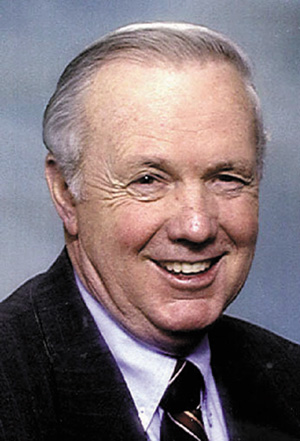No. 415 - IN THE END, ITS BETWEEN YOU AND GOD!
No. 415
Jim Davidson - NEWSPAPER COLUMN
IN THE END, ITâS BETWEEN YOU AND GOD!
Have you ever felt so strongly about something that it literally overwhelmed you? This is how I am feeling just now as I attempt to put these words on paper. Sometime back a friend sent me a short article titled, "Anyway" and it contained a very powerful message. I want to share it with you, but what made this article so powerful and so special is that it was written by the late Mother Teresa and was reported to be hanging on her office wall at the time of her death. The more I thought about this article and how it applied to me, the more I felt compelled to share it with you. Since the article was very brief, it became necessary to do some research to learn more about this true Saint of God, who I knew about and the work she did, but not much about her personal life. Before her death on September 5, 1997, she had gained world prominence for her work in India with the poorest of the poor. .
As the old saying goes, "That ainât the half of it." After my friend Amanda Moore checked out a few books for me from the college library, I began to read and learn about this humble servant of the Lord. It was not long before it dawned on me why I felt so overwhelmed. Just reading about this lady made me feel like I was standing on Holy ground. If you will come, I would like to take you on a journey that began on August 27, 1910 in Skopje, an Albanian city in Kossovo that would come under Yugoslavian rule a few years later.
Gonxha "Agnes" Bojaxhiu, who would later become Mother Teresa, was one of three children born to Kole and Drana Bojaxhiu. Kole was a wealthy businessman with a degree in pharmacy and Drana was a young and beautiful woman of excellent character. Things were good in the Bojaxhiu household in the early years of Agnesâs life, with Godly Christian parents who set a good example of helping the poor and needy in their community. Kole often admonished Agnes to "never take a morsel of food that you are not prepared to share with others." And then, when Agnes was only eight years of age, her father Kole died and things changed drastically in their household.
When Kole died, it was soon to become a time of hardship, as well as grief for Drana Bojaxhiu. The whole burden of looking after the house, managing the family finances and educating the three children fell on her shoulders. In her earlier life, her home had been famous for its parties and hospitality. Now, though she was poorer, her home was still famous for the important things: kindness, gentleness, generosity, and compassion towards the poor. Her faith was very deep and central in her life and she brought her children up to live disciplined lives, but imposed few rules on them. They were to live to set an example for others.
Drana Bojaxhiu was certain that anything she gave to the poor, she was giving to God. She taught this to her children. ÎWhen you do goodâ she told them, Îdo it unobtrusively, as if you were tossing a pebble into the sea.â There is no doubt that the early years of Agneâs life, and her motherâs example had a tremendous influence on her call to serve God. When she was 18 years of age, she had finished school and was thinking about her future. Reading letters from Jesuit missionaries, she again feels an inner voice inviting her to become a missionary to India.
After being in India for a number of years, in 1946 there would be still another call from God. During a train trip to Darjeeling where she was making a retreat, she was suddenly struck by the extremely miserable conditions of the poor. At this time, she hears a call to leave her congregation and devote herself entirely to serving the poor. Then in 1950 the Vatican approved Mother Teresaâs new congregation of sisters that was to be called the "Missionaries of Charity.â During the following 47 years, her work with the poorest of the poor would reach to the far ends of the earth and many honors would come to her that she never sought. Here are only a few of those awards and honors. John Paul XXIII Peace Prize (1971), the John F. Kennedy International Award (1971), The Templeton Award for Progress in Religion (1973), The Albert Schweitzer International Prize (1975), and the Nobel Peace Prize (1979).
Here is that article that I promised in the beginning. ANYWAY - People are often unreasonable and self-centered. Forgive them anyway. If you are kind, people may accuse you of ulterior motives. Be kind anyway. If you are honest, people may cheat you. Be honest anyway. If you find happiness, people may be jealous. Be happy anyway. The good you do today, may be forgotten tomorrow. Do good anyway. Give the world the best you have, and it may never be enough. Give your best anyway. For you see, in the end, it is between you and God. It was never between you and them anyway. To me, this really puts the cookies on the bottom shelf. While we may worry and fret about relations with our fellowman, in the end we have to be accountable to God for everything we do. (Jim Davidson is a motivational speaker and syndicated columnist. You may contact him at 2 Bentley Drive, Conway, AR 72034.)
